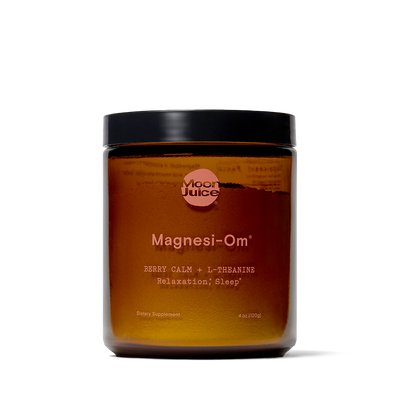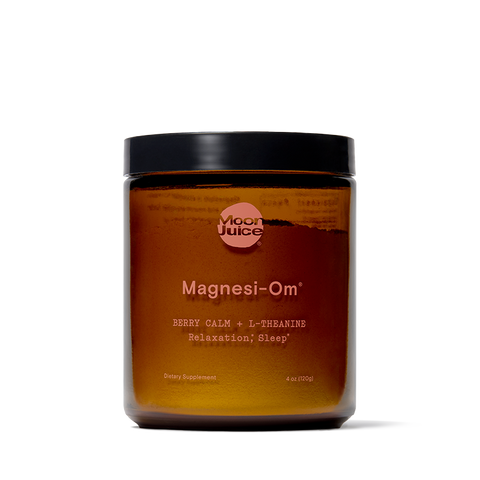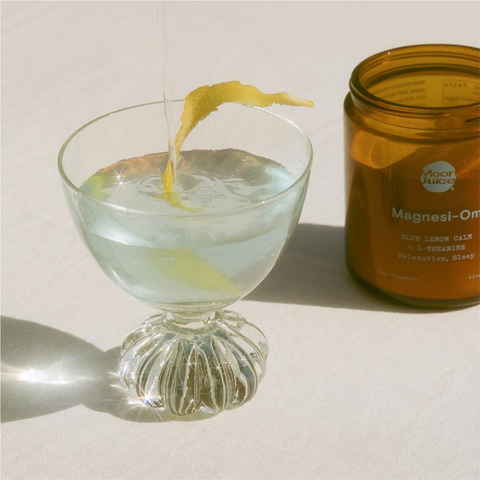You probably don’t think too much about digestive regularity — that is, unless you struggle to have regular bowel movements. According to Johns Hopkins Medicine, an estimated 4 million people in the United States have frequent constipation. This condition — characterized by hard, dry, and/or infrequent BMs — may also elicit bloating, abdominal pain, and feelings of incomplete stool evacuation. In short, it can be uncomfortable and throw your overall sense of well-being into a tailspin. Sound all too familiar? Chances are you’ll benefit from boosting your diet with high-fiber foods for constipation.
Dietary fiber offers countless health benefits. In terms of digestion, fiber binds to water and adds bulk to your stool, thus making it easier to pass. (Fiber also functions as a prebiotic to help good gut bacteria thrive while also helping to maintain overall bowel health.) Foods high in fiber can thus provide constipation relief, which is one of the many reasons why they’re worth prioritizing in your dietary regimen.
Ahead, discover the best high-fiber foods for constipation.
Fruits
Fruits are among the top fiber-rich foods for constipation. Of course, they’re also abundant sources of diverse vitamins, minerals, and antioxidants to support various aspects of your health and well-being.
Per Harvard Health Publishing, fruits with the highest fiber content include the following:
- Guava (1 cup): 8.9 grams of fiber
- Raspberries (1 cup): 8 grams of fiber
- Blackberries (1 cup): 7.6 grams of fiber
- Passionfruit (1/4 cup): 6.1 grams of fiber
- Pear (1 medium): 5.5 grams of fiber
- Kiwi (1 cup): 5.4 grams of fiber
- Grapefruit (1 fruit): 5 grams of fiber
- Apple (1 medium): 4.8 grams of fiber
- Orange (1 medium): 3.7 grams of fiber
- Figs (1/4 cup): 3.7 grams of fiber
- Blueberries (1 cup): 3.6 grams of fiber
In addition, a 2021 review published in the journal Nutrients notes that the following high-fiber foods and dried fruit are among the most commonly recommended foods to help manage chronic constipation and aid in digestive health:
- Kiwis
- Pears
- Apples
- Apricots
- Prunes
- Figs
Tip: To maximize your fiber intake from fruits, make sure to eat the peels and skin whenever relevant and possible. For example, research shows that the fiber content in apples is higher in the peels than in the pulp. And while it may sound strange, kiwi peels are also worth chowing down on for the sake of adhering to a fiber-rich diet for constipation. (Don’t worry: Citrus peels and inedible shells, such as those from pineapples, are better off skipping in a high-fiber diet.)
Vegetables
Unsurprisingly, vegetables are another excellent food group that includes no shortage of high-fiber foods for constipation relief.
Per the Dietary Guidelines for Americans, the top veggies high in fiber include:
- Artichoke (1 cup): 9.6 grams of fiber
- Sweet potato (1 cup): 6.3 grams of fiber
- Parsnips (1 cup): 6.2 grams of fiber
- Jicama (1 cup): 5.9 grams of fiber
- Winter squash (1 cup): 5.7 grams of fiber
- Yam (1 cup): 5.3 grams of fiber
- Broccoli (1 cup, cooked): 5.2 grams of fiber
- Avocado (1/2 cup): 5 grams of fiber
- Cauliflower (1 cup): 4.9 grams of fiber
- Kohlrabi (1 cup): 4.9 grams of fiber
- Carrots (1 cup, cooked): 4.9 grams of fiber
- Collard greens (1 cup): 4.8 grams of fiber
- Kale (1 cup, cooked): 4.7 grams of fiber
A 2024 study published in the journal Frontiers in Nutrition found that a higher intake of non-starchy vegetables across the color spectrum was associated with a lower risk of constipation and greater digestive health. In addition, the researchers noted that tomatoes (though technically a fruit and packing a relatively modest 1.5 grams of fiber per medium tomato) offered a pronounced reduction of constipation risk and supported regular bowel movement.
Tip: If you’re not the type to enjoy a salad daily or simply want to switch things up, there are plenty of ways to include more fiber-rich veggies in your diet. If you’re looking for natural remedies for constipation or just want to boost your digestive system, adding fruits and veggies to your plate can go a long way. Simple ideas to enrich your plate and keep constipation at bay include:
- Snacking on crudites alongside flavorful dips (such as hummus, tahini, green goddess dressing)
- Tossing greens (such as kale and spinach) into smoothies
- Roasting veggies (such as artichoke, broccoli, cauliflower, and eggplant) as plant-based main dishes or sides
- Making a veggie soup with extra virgin olive oil (to boost absorption of fat-soluble vitamins) and seasonings
Whole Grains
Whole grains are yet another group of fiber-rich foods for constipation. Per a 2020 review in the European Journal of Clinical Nutrition, the majority of whole grains offer a good source of dietary fiber and thus can:
- Improve bowel movements
- Boost fecal weight
- Soften stool
- Normalize bowel regularity
- Improve constipation by slowing down colonic transit time
Harvard Health Publishing lists the following whole grains as the top high-fiber foods in this category:
- High-fiber cereal (1/2 cup): 14 grams of fiber
- Cereal with whole-grain kernels (1/2 cup): 7.5 grams of fiber
- Shredded wheat cereal (1 cup): 6.2 grams of fiber
- Popcorn (3 cups): 5.8 grams of fiber
- Bran flake cereal (3/4 cup): 5.5 grams of fiber
- Bulgur (1/2 cup, cooked): 4.1 grams of fiber
- Spelt (1/2 cup, cooked): 3.8 grams of fiber
- Pearled barley (1/2 cup, cooked): 3.8 grams of fiber
- Long-grain brown rice (1 cup): 3.5 grams of fiber
- Multigrain bread (1 large slice): 3 grams of fiber
- Oat bran (1/2 cup): 2.9 grams of fiber
- Whole wheat crackers (1 oz, or about 12 thin crackers): 2.9 grams of fiber
- Whole-wheat tortillas (1 oz): 2.8 grams of fiber
Tip: It’s worth differentiating whole grains from refined grains — the latter of which include the likes of white bread and white rice — which pack less fiber and typically aren’t as nutrient-rich. While you certainly don’t have to exclude refined grains from your diet completely (unless your healthcare team has instructed you to do so), individuals with constipation will be better served prioritizing fiber-rich whole grains. When food shopping, simply read labels to ensure your grains of choice are clearly marked as ‘whole grain,’ ‘whole wheat,’ etc.
Legumes and Beans
Beans and legumes aren’t just foods high in fiber for constipation. Most often, they’re also a fantastic source of plant-based protein and a good source of healthy fats. Similar to the other high-fiber foods listed above, there are tons of options at your disposal to please your palate while diversifying your diet and your gut microbes alike.
The Dietary Guidelines for Americans cites the following beans and legumes as the top fiber-rich items in this category:
- Navy beans (1/2 cup, cooked): 9.6 grams of fiber
- Small white beans (1/2 cup, cooked): 9.3 grams of fiber
- Yellow beans (1/2 cup, cooked): 9.2 grams of fiber
- Lima beans (1 cup, cooked): 9.2 grams of fiber
- Green peas (1 cup, cooked): 8.8 grams of fiber
- Split peas (1/2 cup, cooked): 8.2 grams of fiber
- Lentils (1/2 cup, cooked): 7.8 grams of fiber
- Lupini beans (1/2 cup, cooked): 7.8 grams of fiber
- Mung beans (1/2 cup, cooked): 7.7 grams of fiber
- Pinto beans (1/2 cup, cooked): 7.7 grams of fiber
- Black beans (1/2 cup, cooked): 7.5 grams of fiber

Nuts and Seeds
Last but not least, nuts and seeds are small but mighty high-fiber foods for constipation that are great at supporting digestive health.
According to My Food Data, you’ll get the most bang for your buck by enriching your diet with the following fiber-rich staples:
- Chia seeds (1 oz): 10 grams of fiber
- Flax seeds (1 oz): 8 grams of fiber
- Pumpkin seeds (1 oz): 5 grams of fiber
- Sesame seeds (1 oz): 4 grams of fiber
- Almonds (1 oz): 4 grams of fiber
- Pine nuts (1 oz): 3 grams of fiber
- Pistachios (1 oz): 3 grams of fiber
- Hazelnuts (1 oz): 3 grams of fiber
- Pecans (1 oz): 3 grams of fiber
Complement Your Diet With Supplements
As beneficial as high-fiber foods can be to alleviate constipation and support a healthy gut, they’re only one piece of the puzzle to manage this condition. Staying hydrated, moving your body regularly, and managing stress are other key components to keep constipation at bay and promote healthy digestive function.
The right supplements can also complement your high-fiber diet and move the needle on your digestive woes. For instance, per a 2021 study published in the journal Food Science & Nutrition, dietary Magnesium intake was inversely associated with chronic constipation (i.e., infrequent bowel movements). As such, you might want to include a natural Magnesium powder in your new and improved regimen to promote bowel regularity.
The trick here is to choose the right type of Magnesium, as some are more beneficial than others to help you poop. For reference, the best types of Magnesium to facilitate healthy bowel movements include:
- Magnesium Citrate
- Magnesium Gluconate
- Magnesium Lactate
- Magnesium Oxide
Magnesium Citrate is arguably the most popular of the bunch, which you’ll find in Magnesi-Om® alongside Magnesium Gluconate as well as:
- Magnesium Acetyl Taurinate, which supports cognitive function and can help alleviate symptoms of PMS*
- L-Theanine, a nootropic amino acid that promotes alpha‑wave brain activity and supports healthy cognitive aging*
Consider this Magnesium powder supplement as your one-and-done ally for digestive regularity, physical and mental relaxation, and brain health.
Sources
- Johns Hopkins Medicine. Constipation. https://www.hopkinsmedicine.org/health/conditions-and-diseases/constipation
- Mayo CLinic. Dietary fiber: Essential for a healthy diet. https://www.mayoclinic.org/healthy-lifestyle/nutrition-and-healthy-eating/in-depth/fiber/art-20043983
- Harvard Health Publishing. Foods high in fiber: Boost your health with fiber-rich foods. https://www.health.harvard.edu/nutrition/foods-high-in-fiber-boost-your-health-with-fiber-rich-foods
- PubMed Central. Chronic Constipation: Is a Nutritional Approach Reasonable. https://www.ncbi.nlm.nih.gov/pmc/articles/PMC8538724/
- PubMed Central. Fruit and Vegetable Peel-Enriched Functional Foods: Potential Avenues and Health Perspectives. https://www.ncbi.nlm.nih.gov/pmc/articles/PMC9273365/
- DGA. Food Sources of Dietary Fiber. https://www.dietaryguidelines.gov/resources/2020-2025-dietary-guidelines-online-materials/food-sources-select-nutrients/food-0
- PubMed. The effects of specific vegetable subtypes on constipation incidence in the general United States population. https://pubmed.ncbi.nlm.nih.gov/39114125/
- Food Data Central. Tomatoes, red, ripe, raw, year round average. https://fdc.nal.usda.gov/fdc-app.html#/food-details/170457/nutrients
- European Journal of Clinical Nutrition. Effects of rice-based and wheat-based diets on bowel movements in young Korean women with functional constipation. https://www.nature.com/articles/s41430-020-0636-1
- My Food Data. Nuts annd seeds highest in Fiber. https://www.myfooddata.com/articles/nuts-seeds-high-in-fiber.php
- PubMed. Association of dietary magnesium intake with chronic constipation among US adults: Evidence from the National Health and Nutrition Examination Survey. https://pubmed.ncbi.nlm.nih.gov/34925793/














